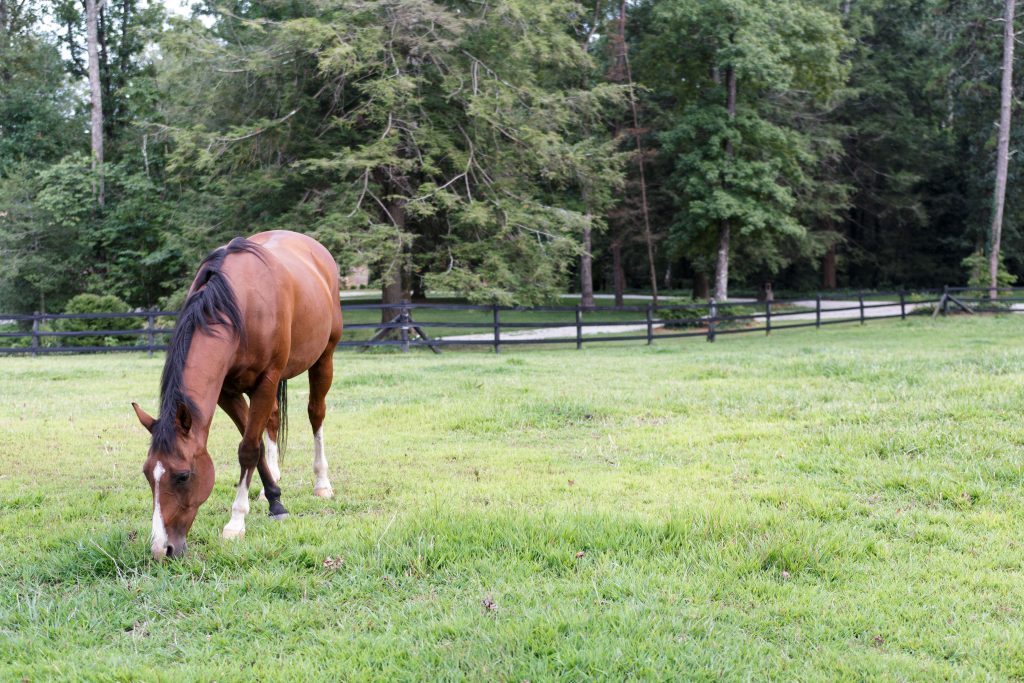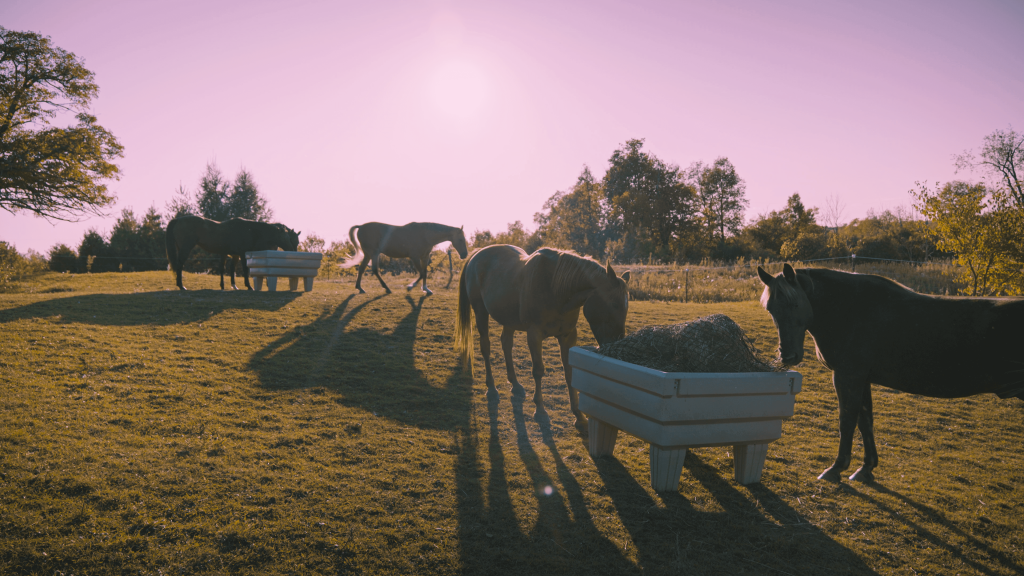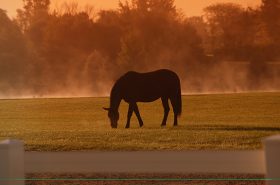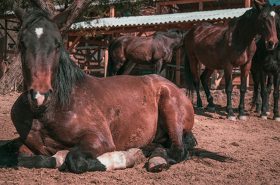Over the years, I’ve had horses experience gas colic on occasion, and what I’ve learned to associate this form of colic with is a change in forage; the last few incidents occurred when I was rotating my horses to a different pasture in either the spring or fall. Chances are, many horse owners have dealt with gas colic or will deal with it at some point.
Here are 10 things to know about this condition:
- Gas colic is one of the most common reasons horses show signs of abdominal pain, but fortunately, it has a very good prognosis for survival.
- If the horse’s flank region is distended or swollen in appearance, the gas is likely trapped in the cecum or large colon. If the flanks are not distended, the gas is probably located in the small intestine.

- Complications from gas colic can occur if the distended bowel becomes displaced or twists upon itself. Though many owners worry that rolling will cause horses to ‘twist’ a bowel, this isn’t likely to happen.
- There is strong evidence linking gas colic with a change in the feed (which includes forage, as has often been the case with my horses).
- Parasite infection has also been linked with gas colic, so getting a fecal egg count is always a good idea if your horse is showing recurring signs of gas colic.

- Both stress and inadequate forage can lead to gas colic as well. To ensure your horse has hay over an extended period of time, invest in a slow feeder like the Hay OptiMizer®. Read more about the Hay OptiMizer® here.
- Walking your horse and allowing him to lay down (if he wants) can be beneficial with this type of colic.
- Make sure your horse always has access to freshwater, as dehydration can also lead to gas buildup.
- One symptom of gas colic is stretching out like the horse needs to urinate. The first time I (knowingly) experienced gas colic with a horse, this was the only symptom she showed.
- Don’t hesitate to get your veterinarian involved. Even though gas colic is often the least serious type of colic, it can lead to greater problems, such as bowel displacement or a ‘twist’ in some instances. It’s important to treat early and keep a close eye on the horse after treatment.
If one of your horses has ever suffered from gas colic, feel free to share about the experience in the comments section.
***
Casie Bazay is a freelance and young adult writer, as well as an owner/barefoot trimmer and certified equine acupressure practitioner. She hosts the blog, The Naturally Healthy Horse, where she regularly shares information on barefoot, equine nutrition, and holistic horse health. Once an avid barrel racer, Casie now enjoys just giving back to the horses who have given her so much. Follow Casie at www.casiebazay.com.



